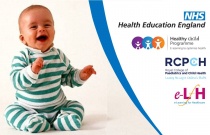Breast Pain
Mary Selby
0.50 Hours
This session describes the presentation and categorisation of breast pain, the assessment of affected women in primary care, their initial management and the indications for referral.
Care of People with Intellectual Disability
Teresa Kippax - Adult Protection Coordinator for Dorset Primary Care Trust
0.50 Hours
To provide guidance about the issues which limit access to primary care services by people with learning disabilities and how these can be overcome.
Assessment of Physical Symptoms
Sarah Yardley
0.50 Hours
Assessment of physical wellbeing is one of the four core areas (also known as domains) of a holistic assessment. In this session you will explore assessment of physical symptoms and how this may interact with the other aspects of a holistic assessment. This session was reviewed by Sarah Yardley and Christina Faull and last updat....
Assessment of Social and Occupational Well-being
Amanda Poppleton
0.50 Hours
This session considers the importance of addressing social and occupational needs for patients at the end of life. As well as considering when and how to assess, you will be introduced to a framework to assist you in formulating achievable goals with patients. This session was reviewed by Rachel Atkinson and Christina Faull and....
CEACCP: Diagnosis of brain death
John Oram MB ChB FRCA DICM (UK) and Paul Murphy MA (Cantab) FRCA
0.50 Hours
The diagnosis, confirmation, and certification of death are core skills for medical practitioners in the UK. Although the confirmation of death remains relatively straightforward in the majority of circumstances, developments in advanced resuscitation techniques together with the continuing recognition of the medical benefits of....
CEACCP: Ethicolegal aspects of organ donation
Paul Murphy BA FRCA and John Adams MA MRCP FRCA
0.50 Hours
Deceased organ donation is frequently considered to lie at the interface between a critical care clinician’s primary and non-negotiable obligations to the care of a dying or dead patient and a broader and less well-defined responsibility towards society’s need for suitable donor organs for transplantation.
Acute Coronary Syndromes
Jason Kendall and Elizabeth Florey
0.50 Hours
This session is about the pathophysiology of acute coronary syndromes, defining acute myocardial infarction and recognising the various presentations and clinical features associated with acute coronary syndromes.
ESH/ESC Guidelines for the Management of Arterial Hypertension
European Heart Journal (2013)
0.50 Hours
The 2013 guidelines on hypertension of the European Society of Hypertension (ESH) and the European Society of Cardiology (ESC) follow the guidelines jointly issued by the two societies in 2003 and 2007.
CEACCP: Right ventricular failure
Leo G. Kevin and Matthew Barnard
0.50 Hours
Whilst failure of the left ventricle (LV) has been the subject of intense interest for decades, failure of the right ventricle (RV) has tended to receive scant attention. Indeed, the RV was long considered a relatively passive conduit for blood flow between the systemic and pulmonary circulations.
CEACCP: Diastolic dysfunction
Rik Kapila FRCA and Ravi P Mahajan DM FRCA
0.50 Hours
Diastolic dysfunction (DD) is increasingly being recognized as an important cause of heart failure. Often the condition may not be anticipated and difficult to differentiate from systolic dysfunction when symptoms develop. This article describes the pathophysiology, clinical features, diagnosis, and management of the condition.
BJA Education: Hypertension in pregnancy
D Leslie BSc (Hons) MBBCh (Hons) FRCA and RE Collis MB BS FRCA MSc
0.50 Hours
Chronic hypertension is defined as hypertension (systolic blood pressure ≥140 mm Hg or diastolic blood pressure ≥90 mm Hg) present at the booking visit or before 20 weeks’ gestation, or if the patient is already taking antihypertensive medication.
Developments in the management of diabetic ketoacidosis in adults: implications for anaesthetists
A Hallett MBChB FRCA, A Modi MBBS MD FRCA and N Levy MBBS BSc FRCA FFICM
0.50 Hours
DKA can occur in both type 1 and type 2 diabetes mellitus and, although preventable, it remains a frequent and life-threatening complication. Errors in the management of DKA are not uncommon and are associated with significant morbidity and mortality.
Prevention of Stress Ulceration
Aung Lwin MRCP and Daniele Bryden FRCA
0.50 Hours
Bleeding from stress ulcer disease remains a significant medical problem in critically ill patients and thus is an important topic for trainees to be aware of. This session will cover the rationale, treatment options and issues related to stress ulcer prophylaxis.
Chronic Lymphocytic Leukaemia: a Short Overview
Montserrat E, Moreno C.
0.50 Hours
Chronic lymphocytic leukaemia (CLL) is characterized by the relentless accumulation of monoclonal CD5+ B lymphocytes in blood, bone marrow and lymphoid tissues. The disease predominates in older individual and its incidence increases with age. The median survival of patients with CLL is around 10 years but the individual prognos....
Acute Myeloid Leukaemia - Complications and Haematopoietic Stem Cell Transplant
Jenny Briggs
0.50 Hours
This session describes the complications of AML and its treatment, which may require critical care input. It also covers how concurrent haematopoietic stem cell transplant and chemotherapy treatment may impact critical illness.
Overview of immunosuppression in liver transplantation
Anjana A Pillai and Josh Levitsky
0.50 Hours
Continued advances in surgical techniques and immunosuppressive therapy have allowed liver transplantation to become an extremely successful treatment option for patients with end-stage liver disease. Beginning with the revolutionary discovery of cyclosporine in the 1970s, immunosuppressive regimens have evolved greatly and curr....
Child Development: Introduction to Development Part 1: Description and Influences
Dilip Nathan and Nadya James
0.50 Hours
This session will outline the development of the healthy child from birth to age five.
CEACCP: Pathophysiology of chronic renal failure
Quentin Milner MB ChB FRCA
0.50 Hours
This review will concentrate on the more common pathophysiological changes of relevance to anaesthesia. Despite impressive medical advances, the overall 4-year survival for patients with ESRD in the UK is only 48%.
CEACCP: Statistics V: Introduction to clinical trials and systematic reviews CEACCP - Aug 2008
Anthony McCluskey BSc MB ChB FRCA and Abdul Ghaaliq Lalkhen MB ChB FRCA
0.50 Hours
Anthony McCluskey and Abdul Ghaaliq Lalkhen provide us with an in-depth discussion on clinical trials and systematic reviews
Patient Consent
John Rose, The London Deanery, Ash Communications Healthcare
0.50 Hours
This session is an outline of the general principles of consent and focuses on the types of consent to treatment. It examines what happens before the age of consent and what can be done when consent is refused. It also looks at consent in the case of people with learning difficulties, living wills and organ donation.
Capacity and Difficult Consent
Ginny Wright and Binita Jani
0.50 Hours
This session describes clinical scenarios involving patients with complex medical and ethical problems relating to consent, which clinicians will find challenging.
Organising your practice to support carers
Chantal Simon
0.50 Hours
Carers experience health, social and financial problems as a result of their role. They are more likely to have seen their GP recently than any other support professional, and so it is vital for GPs within primary care teams to know how to identify and support carers in order to maintain the health of the carer, and to preserve....
AKI - Life-threatening Complications
Sanjay Ojha
This session will explain how to recognise and manage the life-threatening complications of acute kidney injury, and how to explain the process of emergency dialysis to a patient with acute kidney injury.
AKI - Differential Diagnosis
John Firth
This session will explain how to make the diagnosis of acute kidney injury, and how to determine whether it is caused by pre-renal failure/acute tubular necrosis, a renal inflammatory condition, or urinary obstruction.
























